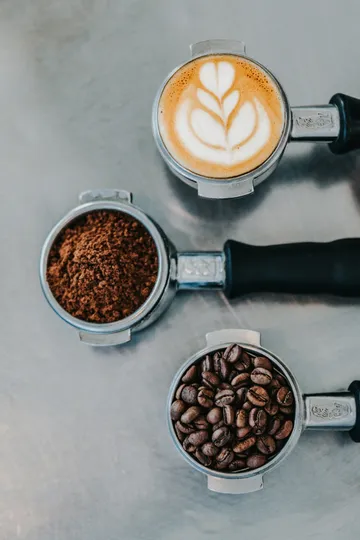The coffee industry is currently undergoing significant changes due to licensed coffee brand suppliers narrowing down their IP assortments and raising wholesale prices in response to surging costs for whole-bean coffee. These shifts are reshaping the market and influencing licensing strategies across the industry.
Overview of the Partnership
Recent developments highlight new licensing partnerships aimed at enhancing brand value and market appeal. Major players such as Keurig Dr. Pepper, the SOF veteran founded Black Rifle Coffee, White Coffee, and Lavazza are at the forefront of these changes.
These companies are leveraging strategic licensing agreements to introduce unique, themed coffee products that resonate with both existing and new consumer bases - even as whole-bean costs surge and brand suppliers limit their IP choosings while raising their all-inclusive prices.
Historical Context
Licensing partnerships have long played a crucial role in the coffee industry. Past collaborations, such as Starbucks' partnership with Teavana or Dunkin’ Donuts' alignment with Baskin-Robbins - with the former being the latter’s parent company since the late 1980s -, have shown how effective these strategies can be.
These historical successes have paved the way for current trends, where coffee brands use popular intellectual properties (IPs) to differentiate their products and attract a wider audience - by standing out on retail shelves and online.
Impact Analysis
Market Response
Initial market responses to these licensing partnerships have been largely positive. Consumers are drawn to the unique, themed offerings, while retailers report increased interest and sales.
For instance, Bones Coffee's partnerships have introduced distinctive, flavor-rich blends that cater to niche markets, enhancing brand loyalty and customer engagement.
Strategic Positioning
For brands like White Coffee, aligning with well-known IPs such as Entenmann’s: Mars, M&Ms, Twix, Snickers, and Bailey’s Irish Cream to sell its ground & whole bean coffee as well as K-Cups strengthens their market position and broadens their demographic appeal.
By further timing product releases with significant events or seasons, these brands can maximize impact and drive sales. This strategy not only aligns with broader industry trends but also helps brands stay relevant in a competitive market.
Innovation in Product Development
Licensing partnerships have led to innovative product developments that blend core brand identities with unique elements from the partnered IPs. For example, Uncommon Coffee Roasters’ collaborations often feature special packaging and unique flavor profiles inspired by the licensed properties. These innovations add value and appeal to both coffee enthusiasts and fans of the licensed IPs.
Licensing Strategy
The broader strategy behind these partnerships involves selecting IPs that justify higher price points and resonate with target audiences.
Many licensed property coffees are in mass and off-price sales channels, which have gotten damaged and restricted financially the past few years. Therefore, major coffee roasters are seeking out trademarks that people will value and pay a premium for.
This approach helps roasting brands manage rising costs by ensuring that the licensed products offer added value, which in turn increases their margins. Looking ahead, future collaborations are likely to focus on high-impact, high-value IPs that can drive consumer interest and justify premium pricing.
Broader Industry Trends
Cross-Industry Collaborations
Cross-industry collaborations are becoming increasingly important as brands seek to tap into new markets and demographics. The coffee industry is part of a larger trend where partnerships redefine traditional business models and create new consumer experiences. These collaborations can be seen in various sectors, from fashion to technology.
Brand Synergy
The synergy between coffee brands and their licensing partners creates mutual benefits, enhancing brand equity and expanding market reach.
By aligning with well-known IPs, coffee companies can create more engaging and memorable products that stand out in a crowded market.
Success Stories and Case Studies
Previous success stories, such as the collaboration between Baskin-Robbins and its parent company, Dunkin’, to create ice cream-inspired coffee flavors - provide valuable insights into the potential of strategic partnerships.
These examples demonstrate how licensing deals can drive business growth and market expansion, offering a roadmap for other brands looking to innovate and differentiate themselves.
Predictions for Future Licensing Deals
The future of licensing deals in the coffee category looks promising, with potential for more creative and cross-industry partnerships. As brands continue to innovate and seek new ways to connect with consumers, we can expect to see more collaborations that push the boundaries of traditional licensing.
Conclusion
The recent shifts in the coffee industry, particularly soaring prices and narrowed IP options, haven’t hindered licensing deals or production. While the number of completed deals might be affected moving forward, brands have no choice but to authorize their trademarks - since a licensed brand helps to differentiate your product in an incredibly crowded market.
For example, Keurig’s Dr. Pepper signed K-Cup licensing deals for Black Rifle Coffee & Canada’s Kicking Horse, is transitioning Lavazza from a partnership to a licensed label, has unveiled a $100-million plan to increase coffee production at its Spartanburg, S.C. plant, and has signed a licensing agreement with country music star Kelsea Ballerini for a limited “Ballerini Blend” coffee under its The Original Donut Shop label.
Meanwhile, Sofia Vergara recently launched a women-focused Colombian coffee brand.
These ongoing collaborations and innovations in the coffee licensing world underscore the importance of strategic partnerships and novelty.
By carefully selecting relevant, high-value IPs and leveraging their market appeal, coffee brands can navigate rising costs and continue to grow.
Industry players should explore similar opportunities and stay attuned to emerging trends to maintain their competitive edge.
For more opportunities within the licensing industry, and to seamlessly hash out your own deals - ones that’ll grow your company’s sales and drive its market potential to the next level -, visit Negosh.com, our one-of-a kind, seamless, online licensing marketplace platform.
